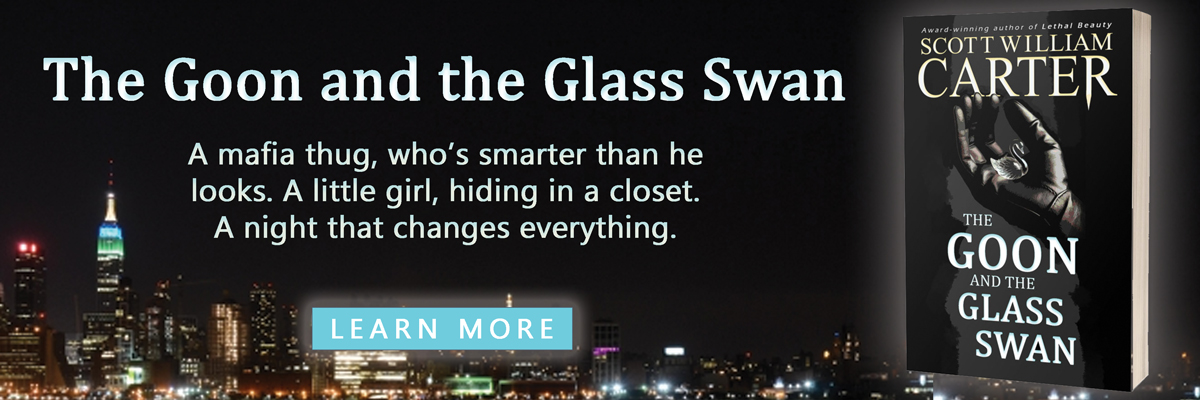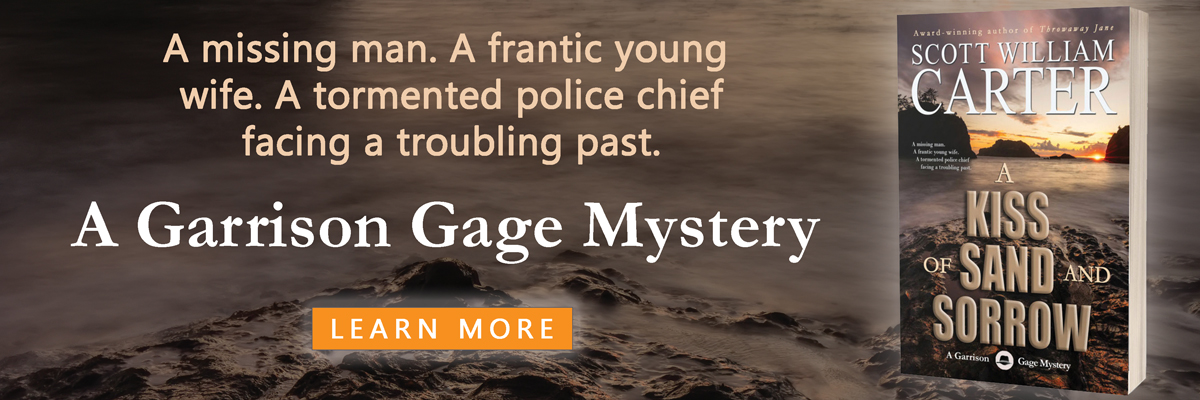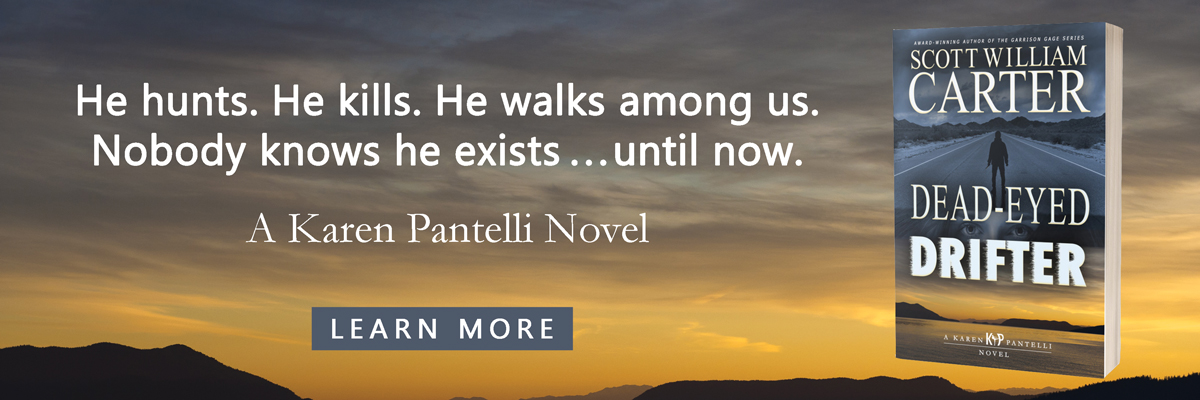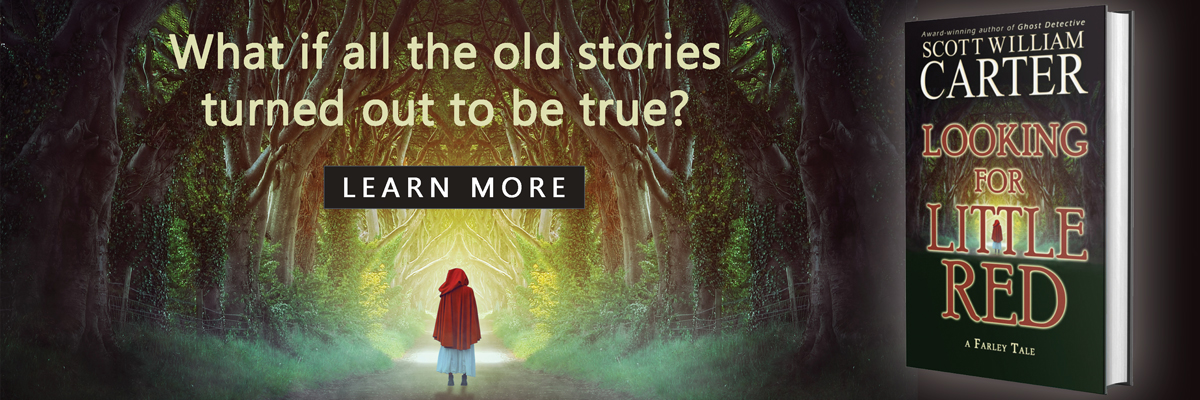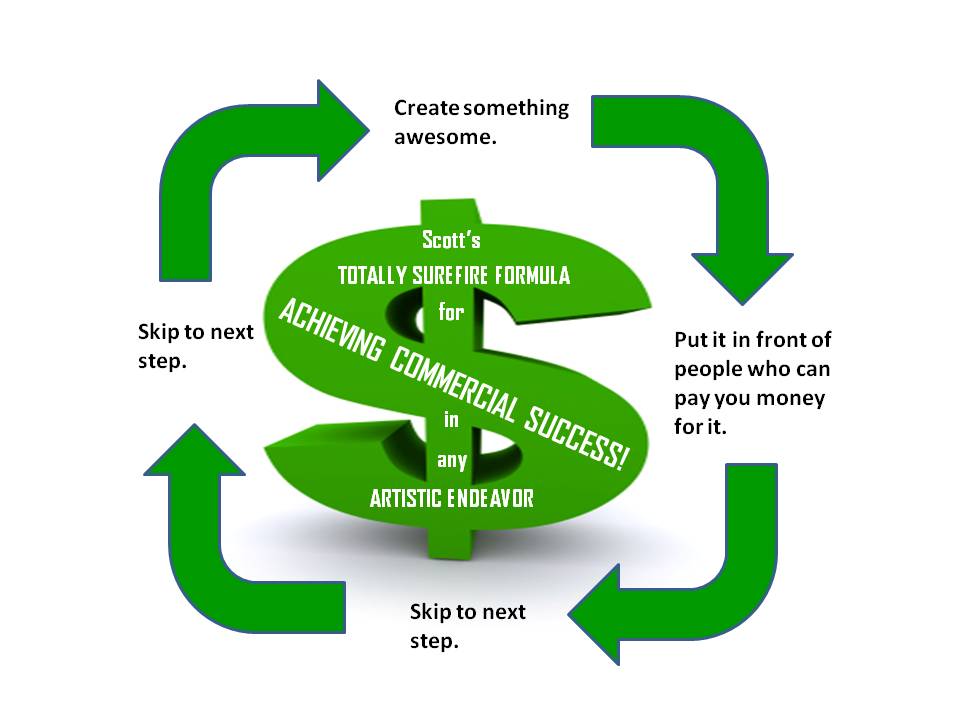Over at The Passive Voice, there’s a great post titled, “Indie Authors Quitting Their Day Jobs” that’s worth a read:
If you care to contribute such anecdotal evidence in comments to this post, please do.
If you think it’s your private business, don’t be offended. Just don’t post anything.
Feel free to post anonymously or under an online pen name if you like. If someone points out a trollish comment, PG will probably delete the comment when he gets around to it.
If you’re a writer, or simply a reader who’s interested in the many ways writers have found success outside of traditional publishing, read all the comments. Very inspiring stuff.
 And I want to add something here, something I’ve been wanting to get off my chest for a while. As you can see from the comments, there are lots of ways to skin this cat. We’re four or five years into this “indie publishing revolution” now, depending on how you measure it, long enough that some of things that I advocated to writers a couple years ago, both at workshops and online, I wouldn’t advocate today. I know of writers who have done well since then, and others who are bitter that things didn’t go as well as they’d hoped — and some of these bitter folks direct their anger at the people who were trying to help them. Why? Because whatever technique or method or approach that was advocated didn’t work for them. Therefore all of that advice is suspect.
And I want to add something here, something I’ve been wanting to get off my chest for a while. As you can see from the comments, there are lots of ways to skin this cat. We’re four or five years into this “indie publishing revolution” now, depending on how you measure it, long enough that some of things that I advocated to writers a couple years ago, both at workshops and online, I wouldn’t advocate today. I know of writers who have done well since then, and others who are bitter that things didn’t go as well as they’d hoped — and some of these bitter folks direct their anger at the people who were trying to help them. Why? Because whatever technique or method or approach that was advocated didn’t work for them. Therefore all of that advice is suspect.
Oh really? It’s not weakness to change your mind; it means you’re adaptable, capable of changing your approach to fit the reality on the ground. And reality can change. One of the greatest dangers when you teach others, especially if you have a voice that leans toward the dogmatic (and sometimes you have to be dogmatic to break through people’s mental barriers), is that people will take what you say as gospel. As rules to be followed to the letter, rather than suggestions to take into account. As a formula to be copied, rather than a method to be studied to see if it might work for you.
Because here’s the only truth I know about this crazy business of stringing words together and selling them for money. All the ways to find success as a writer start with thinking for yourself.
There are people who have success in every genre—romance, fantasy, mystery, you name it. There are writers who are extremely prolific, following the “make a little on a lot” approach, the same approach that traditional publishing uses, and there are writers who make a lot on a little, using aggressive and frequent discounting and tested visibility techniques to boost their sales. To be dismissive of either approach is only an admission on your part that you are letting your biases get in the way of your learning.
 There are writers who publish only with Amazon, taking advantage of the promotional tools available to people who publish exclusively with them, and writers who think it’s better to cast a wider net, publishing everywhere and in every format. There are writers who only work with traditional publishers, writers who are indie-only, and hybrid writers who do a little of both. There are writers who say never write to market, just write what’s in your heart and don’t chase trends. And yet I just read about a guy who hit 1000 sales in one day by repeatedly targeting the market, specializing in 15-20K word serials; he does three, and if it takes off, he does more, and if not, he moves onto something else.
There are writers who publish only with Amazon, taking advantage of the promotional tools available to people who publish exclusively with them, and writers who think it’s better to cast a wider net, publishing everywhere and in every format. There are writers who only work with traditional publishers, writers who are indie-only, and hybrid writers who do a little of both. There are writers who say never write to market, just write what’s in your heart and don’t chase trends. And yet I just read about a guy who hit 1000 sales in one day by repeatedly targeting the market, specializing in 15-20K word serials; he does three, and if it takes off, he does more, and if not, he moves onto something else.
And it’s working for him, because he’s thinking for himself.
There are writers who hit a goldmine with one of their first books. There are writers who still scrape out a subsistence existence after a 100 titles— but would rather do that than even take on a part-time job. There are writers who bag groceries, bar tend, or other dead end gigs, to preserve their creative energy for what they love most, and other writers, like me, who made the decision to commit fully to two careers because I get tremendous value from both. That’s another thing I changed my mind on, by the way. Because I had to change my goals to fit both my evolving needs and the circumstances of my life.
I’ve received a lot of great advice over the years. Some I followed. Much of it I thought about, then discarded—even if it came from people I admired. I’m guessing that just about all the writers in that comment section at The Passive Voice have done the same. They didn’t copy anyone. They didn’t blame anyone when things were going poorly any more than they would give someone else all the credit when things were going well.
This truth doesn’t just apply to writing, of course. It applies to achieving success in anything in life. Learn from everything and everyone—but in the end, think for yourself and find your own way.
The irony, of course, is that it is the only way.
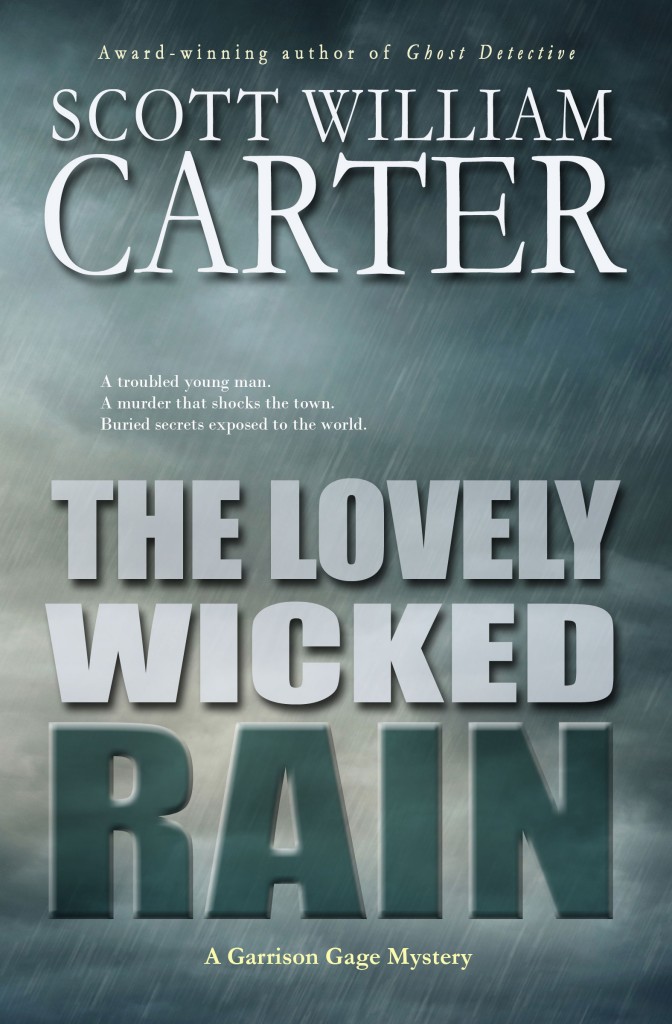 Ebook:
Ebook:
